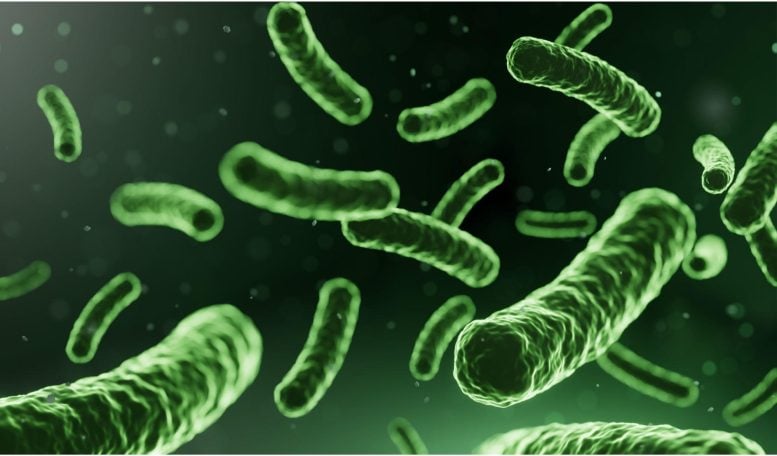
Foods with live microorganisms include yogurt and other fermented foods, as well as raw fruits and vegetables. The study found that increased consumption of these foods was linked to better health markers such as lower blood pressure, better blood glucose and insulin levels, lower inflammation, and lower waist circumference and body mass index.
A recent study reveals that individuals who consume higher amounts of live microorganisms on a daily basis tend to have lower weight and improved overall health.
Live microorganisms that are safe to consume can be found in many of the foods we eat daily, including fermented foods like yogurt and raw fruits and vegetables. Despite the common perception that these blends of live bacteria promote good health, there has been a shortage of concrete evidence supporting the link between live dietary microorganisms and improved health.
A recent study has presented some of the first real-world evidence that consuming more live microorganisms can have a positive impact on health. Researchers from the International Scientific Association for Probiotics and Prebiotics (ISAPP) led the study and used the US National Health and Nutrition Examination Survey (NHANES) to categorize over 9,000 foods into three groups based on the concentration of live microbes they contain. By analyzing the reported food intake of NHANES participants, the scientists were able to quantify the amount of food consumed that had moderate to high levels of live microbes.
Then they determined how these intakes correlated with various markers of health such as blood pressure and weight.
The scientists found that increased consumption of live microbes in the diet was linked with multiple measurements of better health: more favorable blood pressure, better blood glucose, and insulin, lower inflammation, as well as lower waist circumference and body mass index. This established that those who consumed higher quantities of live dietary microbes showed tangible, if modest, health benefits.
While the scientific approach did not allow researchers to conclude that the live dietary microorganisms directly caused the health benefits, the results are consistent with plausible arguments that dietary exposure to live microorganisms, in general, could benefit health by increasing the diversity of microbes in the gut or by supporting immune function. In the past century, a reduction in the amount of fermented foods in the diet and increased consumption of processed foods have led to a dramatic reduction in the number of microbes most people consume on a daily basis.
This trend may be reversing, however, since the dietary data used in the study showed that US adults have gradually increased their live microbe consumption over the 18-year study period. This may bode well for the health of the population.
This study was built on two previously published papers, here and here, which conducted the preliminary work necessary to make this assessment of live dietary microbes and health.
”Although the dose-response associations we found were relatively modest, it was notable that these estimated benefits applied to several plausible and important health outcomes and were robust to adjustment for available confounders, including body mass index,” says co-lead author Prof. Dan Tancredi, Ph.D., of the University of California – Davis. “More research that extends these findings to other populations and research that uses study designs that permit stronger causal claims is needed, especially given the potential benefits that might be available by simply substituting into the diet more foods that have safe live microbes.”
ISAPP Executive Science Officer Mary Ellen Sanders, Ph.D., points out the research focused not just on probiotics, but on all microbes in foods, including environmental microbes associated with raw fruits and vegetables as well as lactic acid bacteria associated with fermented foods. Thus, the study differs from probiotic research, which focuses on microbes defined to the strain level, specific dose, and proven health benefits.
Co-first author Prof. Colin Hill, Ph.D., of University College Cork, Ireland, says it’s possible that dietary advice of the future could include a recommendation for the daily consumption of high levels of live dietary microbes.
“Those foods with high levels of microbes (fermented foods, raw vegetables, and fruits) are all nutritionally valuable parts of a healthy and diverse diet,” he says. “Secondly, these same foods could be providing an additional, hitherto unrecognized, health benefit due to live microbes themselves that enter the gut and interact with the host microbiome, immune system, and even the enteric nervous system”.
Reference: “Positive Health Outcomes Associated with Live Microbe Intake from Foods, Including Fermented Foods, Assessed using the NHANES Database” by Colin Hill, Daniel J. Tancredi, Christopher J. Cifelli, Joanne L. Slavin, Jaime Gahche, Maria L. Marco, Robert Hutkins, Victor L. Fulgoni, Daniel Merenstein and Mary Ellen Sanders, 22 February 2023, The Journal of Nutrition.
DOI: 10.1016/j.tjnut.2023.02.019









Just a reminder that there are different kinds of microorganisms, and some of them want you dead. Some are poison. Do not eat randomly fermenting things. Eat and drink foods intended to be fermented. After the scitechdaily article on the study which found CPACC cobalt made mice lose weight by blocking magnesium in mitochondria, and a thousand women commented demanding this miraculous magnesium, I don’t trust you people anymore.